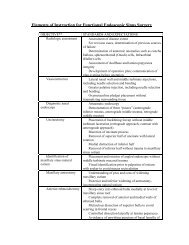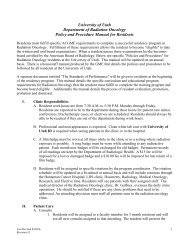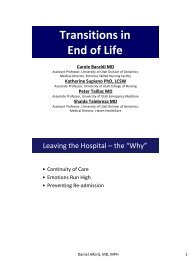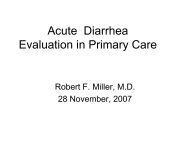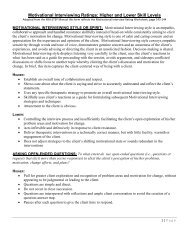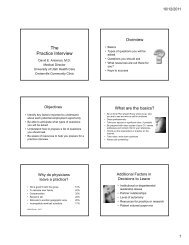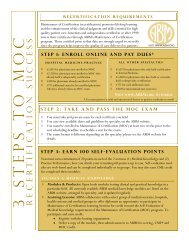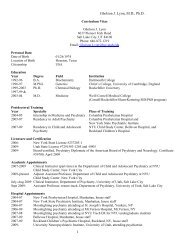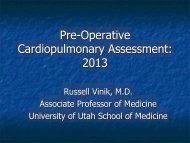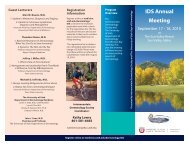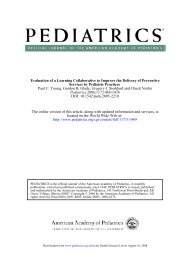Housestaff Pocket Guide - University of Utah - School of Medicine
Housestaff Pocket Guide - University of Utah - School of Medicine
Housestaff Pocket Guide - University of Utah - School of Medicine
You also want an ePaper? Increase the reach of your titles
YUMPU automatically turns print PDFs into web optimized ePapers that Google loves.
Surgery on the wrong patient or wrong body part<br />
Fetal/maternal injury or death<br />
Neurological injuries<br />
Loss <strong>of</strong> limb(s)<br />
Loss <strong>of</strong> eyesight or hearing<br />
Unexpected death<br />
Threats to sue<br />
Patient refuses treatment<br />
Mishaps due to misuse <strong>of</strong> or faulty equipment<br />
Falls<br />
Burns<br />
“Never events”, i.e. serious preventable events as defined by CMS<br />
Serious medication errors<br />
Implant device failures<br />
Suicide or attempted suicide<br />
Infant abduction or discharge to the wrong family<br />
Fires and environmental hazards<br />
Confirmed transfusion reactions<br />
Adverse Events<br />
1. Ensure patient safety<br />
2. Notify the Attending Physician<br />
3. Preserve evidence (equipment, supplies, packaging, tubing, etc.)<br />
4. Inform patient <strong>of</strong> incident (disclosure)<br />
5. Notify Risk Management<br />
6. Treat factually, like any other problem<br />
7. Do not place blame<br />
8. Do not editorialize<br />
9. Do not write or refer to “Incident Report” , “PSN” or “Risk Management” in medical record<br />
10. Complete a PSN Event Report<br />
11. Document the event clearly and objectively in the medical record, including discussions with the patient and<br />
family and the notification <strong>of</strong> the attending physician.<br />
PEDIATRIC CODES<br />
WBN seniors & interns are the KEY providers <strong>of</strong> the pediatric code team at the <strong>University</strong> Hospital<br />
ALWAYS have your PALS card (in addition to your NRP knowledge/card)<br />
What to do if a code happens AND a resuscitation:<br />
o If you are actively in a resuscitation: Obviously, resuscitate the baby. Have someone call ASAP<br />
the NICU resuscitation team to come take over your resuscitation. Once they arrive & you have<br />
safely transferred care, go to the CODE<br />
o If a code is called (and you are not actively resuscitating):<br />
• Senior should go to code immediately; intern should alert NICU resusc team to cover ALL<br />
deliveries/resuscitations, then go to code also<br />
ALL CODE CARTS AT THE U:



